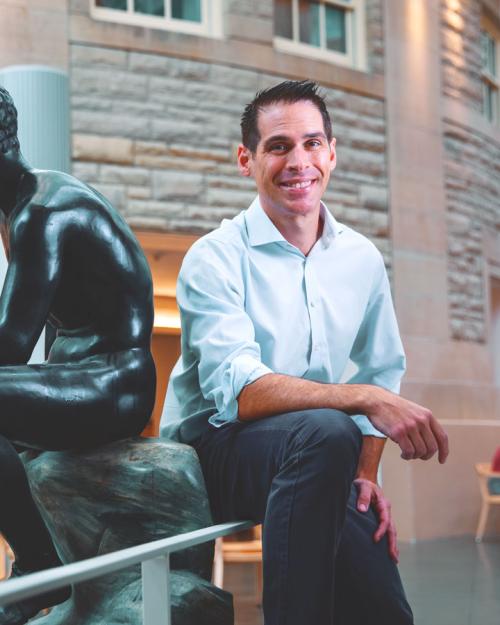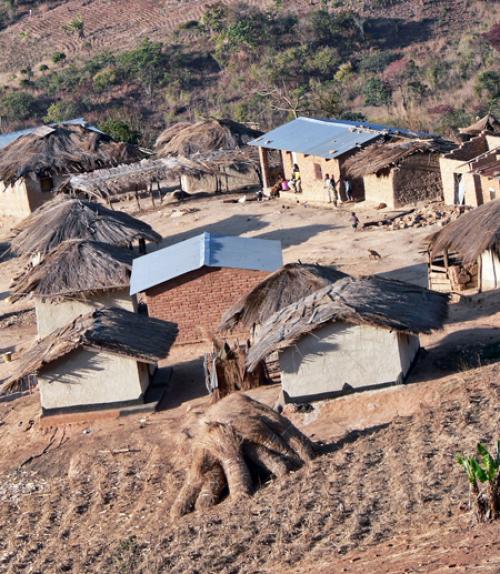Twelve graduate students will spend this year refining their dissertation plans and testing the waters of global research, with help from faculty mentors and intensive workshops, in the Einaudi-SSRC Dissertation Proposal Development Program.
The Mario Einaudi Center for International Studies, partnering with the New York–based Social Science Research Council, selected this year’s awardees based on the potential impact of their research and its cross-disciplinary engagement with world issues. The students will receive up to $5,000 for summer research in countries like Malawi, Sri Lanka and India.
“The program is interdisciplinary and brings together students from across the university,” said history professor Durba Ghosh, one of the program’s co-leaders. This year’s theme, “Embarrassment of Riches: Coping With Knowledge in Excess,” tackles big data in the social sciences and humanities.
“The workshops are designed to develop professional skills at a crucial moment in a graduate student’s career,” she said. “They encourage students to speak to nonspecialists and provide experience in offering and receiving critique and writing grant proposals.”
This year’s awardees:
- Spencer Beswick (history) plans to explore the new current of anarchism in the European and U.S. anti-globalization movement and the movement’s poststructuralist and autonomist intellectual history.
- Kaitlin Emmanuel (history of art and visual studies) will research the Sri Lanka avant-garde, including the political, socio-cultural and historical conditions that put Sri Lankan artists in conversation with global modernism.
- Stephanie Enloe (development sociology) will study how village-level institutions and smallholder farmers in Malawi are working together to advance food security through sustainable agriculture, as new government policies integrate agriculture into global markets.
- Juan Fernandez (history) will analyze the colonial history of masculinity in the Philippines and Borneo. Colonial representations reshaped both native and white masculinities and ultimately transformed highland “savages” into useful agents of the state.
- Molly Ingram (economics) will study trader-farmer relationships in Ethiopia’s agriculture markets, examining the influence of high-powered traders on agricultural productivity and farmers’ chances of escaping poverty.
- Victoria Emma Kioko (English) plans to examine how members of the African diaspora enter into dialogue across time and space. The project looks to legal constructions of property to frame collective imaginings of belonging in exile.
- Aparajita Majumdar (history) will study the failure of the rubber tree as a plantation commodity crop in British India, exploring Ficus elastica’s elusive growth pattern and how indigenous groups have used the plant as an alternative resource.
- Vincent Mauro (government) will study how institutionalized party systems in Latin America following the rise of democracy have worked to redistribute income, advancing aims of the political left to alleviate inequality.
- Ana Okazi (architecture) will examine how Portuguese modernists and Afro-Latino/a returnees challenged the power relations of the transatlantic slave trade to produce a distinctive tropical architecture style in Latin America and sub-Saharan Africa.
- Shriya Rangarajan (city and regional planning) is working on ways consumption-side synergies can close the loop in a “circular economy.” She plans to map distances between actors in the consumption value-chain and identify opportunities for more sustainable use of resources.
- Krithika Vachali (English) will analyze how the acquisitive tendencies of the British Empire that ordered 19th-century science and natural history were also at work in Victorian realist novels.
- Palashi Vaghela (information science) will study the possibilities for empowering women in India through international development programs that enhance technological knowledge and expertise.
The Einaudi Center was one of only five institutions in the country to receive a three-year SSRC University Initiative grant, with funding from the Andrew W. Mellon Foundation. The Einaudi Center is building partnerships across campus to sustain the program – now in its third year – as a permanent professional development opportunity for Cornell graduate students.
This story also appeared in the Cornell Chronicle.




